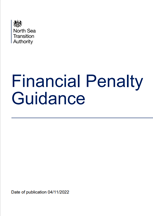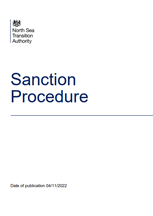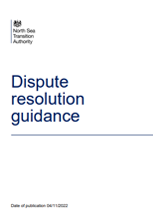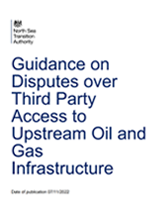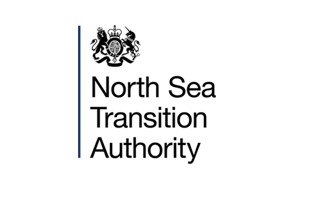
The Disputes and Sanctions Team sits within the NSTA's Regulation Directorate to address disputes between relevant persons and compliance with regulatory obligations.
NSTA's measured escalation process
The NSTA’s escalation process describes the steps the NSTA will usually take leading up to a decision whether or not to exercise its powers, and the process is illustrated in the figure below:
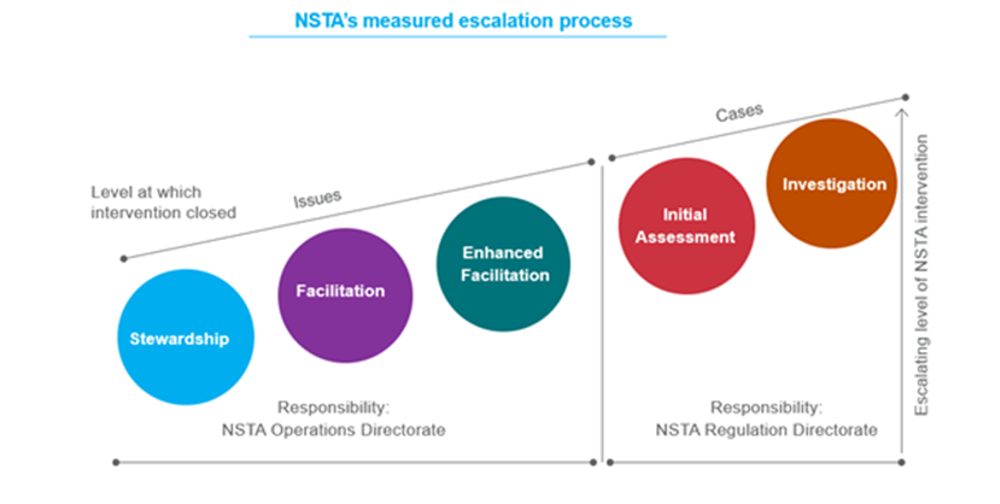
The NSTA separates 'issues', where the NSTA seeks primarily to influence the outcome, from 'cases', where the NSTA will consider formal intervention with regulatory powers, and has developed a process of measured escalation to track and transition issues and cases. Detail of the measured escalation process can be found here.
The current case register can be viewed here.
When considering whether or not to take action using formal powers the NSTA will review that issue alongside its prioritisation criteria which can be found here.
There are various potential outcomes the NSTA can pursue after conducting an Initial Assessment. A summary of the options can be found here.
One outcome is opening a sanctions Investigation. Where the NSTA opens an Investigation, the NSTA will publish brief details of the existence of that Investigation. The NSTA will not generally name the parties who are the subject of the Investigation at that stage, unless the NSTA considers it would be in the public interest to do so.
The NSTA may publish details of any Sanction Notice issued (including the identity of the parties subject to the sanction) subject to the condition that the NSTA may not publish anything that, in the NSTA’s opinion, is commercially sensitive, not in the public interest to publish or is otherwise not appropriate for publication.
The NSTA have published a range of guidance which can be accessed (by clicking the graphics) below:
Consultation on NSTA approach to Offshore Merger and Acquisition (M&A) Transactions
On 17 May 2022, Tom Wheeler, the NSTA's then Director of Regulation (now Director of Operations), wrote to offshore licensees highlighting that the NSTA will launch a consultation intended to inform guidance setting out how the NSTA expects co-venturers to approach M&A transactions and what conditions co-venturers can reasonably put on their consent to transactions. The letter can be viewed here.
May 2023 update: The NSTA is undertaking the consultation on its proposal to issue NSTA Guidance on the conduct of licence assignments - further details can be viewed here.
In October 2020 the NSTA published a Thematic Review into Industry Compliance with Regulatory Obligations. The review recognised that industry was improving, following earlier interventions, but stressed the importance of maintaining the high standards achieved by the majority, and the need for a minority to catch up. In particular, the review noted that there remained room for improvement around managing production, flare and vent consents and the timeliness of licence extension requests. The observations made in the review remain relevant.
The review looked at six areas of interaction between licensees and the NSTA and examined the reasons why some licensees were tripping up, while others were doing a good job. The six areas investigated were:
- Licence Mechanics (the process of applying for, extending and renewing licences)
- Flaring, Venting and Production Consents
- Pipeline Works Authorisations
- Wells Consents
- Data Requirements (Data reporting and Information and Samples Plans)
- Statutory Notification of Meetings
- The NSTA’s Regulatory Approach
On 4 June 2019, Tom Wheeler, the NSTA's then Director of Regulation (now Director of Operations), wrote to all licensees and infrastructure owners regarding the next stage of our regulatory approach. The text of the letter can be viewed here



